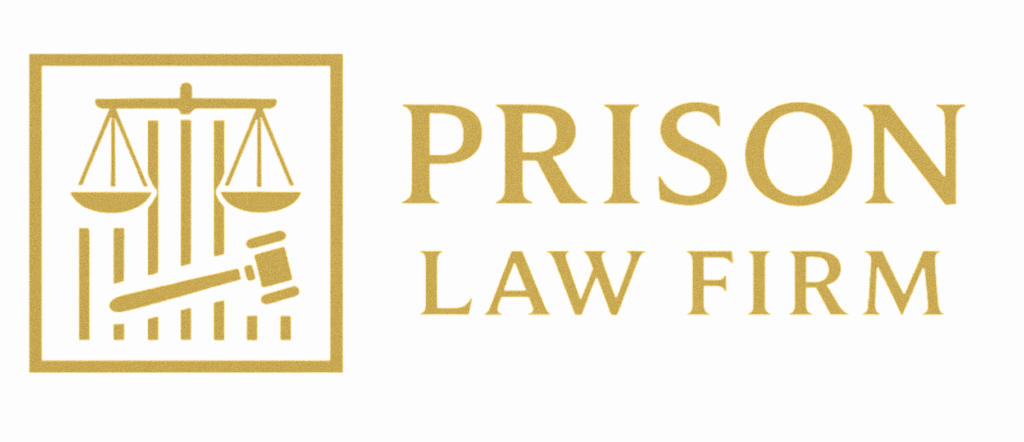Correctional Staff Must Keep People Safe—What If They’re the Ones Causing Harm?
Correctional officers and other prison employees are responsible for protecting people in custody—including from other incarcerated individuals and from self-harm. But what happens when employees cause the harm? Allegations of employee misconduct at the Federal Bureau of Prisons (BOP) are rising—and the backlog of investigations makes accountability harder.
Scope of the Problem
More than 155,000 people are serving sentences in approximately 120 federal facilities nationwide. Their safety is entrusted to over 35,000 BOP employees. Despite required training on professional conduct, the BOP received nearly 15,000 misconduct allegations in the last fiscal year—ranging from unprofessional conduct to serious abuse.
What Counts as Employee Misconduct?
Common Administrative Allegations
- Unprofessional behavior (e.g., profane language, harassment)
- Failure to follow policies or supervisor instructions
- Attendance issues (e.g., absent without leave, refusing required overtime)
These actions aren’t criminal, but they undermine safety culture, degrade trust, and strain already limited staff resources.
Criminal Allegations
Roughly 14% of allegations from FY2014–FY2024 were potentially criminal (e.g., physical or sexual abuse). In one prominent case, a federal women’s prison in California closed in 2024 after staff, including a former warden and chaplain, were implicated in serial sexual abuse.
How Allegations Are Investigated—and Why Delays Matter
Most allegations are investigated internally; a smaller subset is referred to outside agencies for potentially criminal conduct. If evidence supports the allegation, the BOP may impose discipline, including suspension or termination.
The Backlog
As of February 2025, more than 12,000 cases were still open—awaiting investigation or discipline. Nearly 40% had been pending for 3+ years, creating serious accountability risks as memories fade and witnesses leave.
| Time Open | Share of Open Cases |
|---|---|
| Less than 1 year | 37% |
| 1–2 years | 26% |
| 3–4 years | 24% |
| 5–10 years | 13% |
Delays can cause employees—and the public—to question whether the agency takes misconduct seriously, weakening deterrence and morale.
What Should Change
1) Use Data for Early Warning
The BOP compares yearly totals but doesn’t consistently analyze multi-year trends by allegation type. Trend dashboards—by unit, shift, and allegation—would help leaders identify hotspots and intervene sooner.
2) Attack the Backlog with a Real Plan
Hiring more investigators is not enough. The agency needs a milestone-based plan that sequences cases by age and severity, sets weekly clearance goals, and publicly reports progress. The oldest, most serious cases should move first.
3) Close the Loop on Training
Staff are trained on professional conduct, but the BOP doesn’t routinely measure training effectiveness. Pre/post assessments, anonymous feedback, and behavioral audits would turn training into prevention—not just a requirement.
How Prison Law Firm Helps—Nationwide
We help people in federal custody—and their families—respond to staff misconduct with a strategy designed for speed, safety, and accountability:
- Immediate triage & documentation: We organize facts, preserve evidence, and map the safest reporting path.
- Administrative remedies: Exhaustion is often required. We help file, track, and escalate grievances to build a clean record for court.
- Targeted court relief: For ongoing harm, we pursue injunctions or habeas routes; for injuries caused by negligence, we file FTCA claims; for religious or disability discrimination, we bring RFRA and Rehabilitation Act claims.
- Coordination with authorities: In potential criminal cases, we advise on referrals to outside investigators while protecting our client’s rights.
Request a free, confidential case review
We coordinate with local counsel when necessary and represent clients in federal prisoner matters across the United States.
Frequently Asked Questions
What gets reported most often?
Unprofessional conduct and policy violations—harassment, profanity, ignoring procedures, or refusing required overtime—constitute a large share of allegations.
How are serious (criminal) allegations handled?
Potentially criminal cases can be referred to external investigators or prosecutors. Confirmed violations may result in criminal charges in addition to administrative discipline.
Why does the backlog matter?
Cases that linger for years are harder to prove and harder to discipline. Evidence goes stale, and implicated employees may leave before accountability occurs—weakening deterrence.
What if I or a loved one is in danger now?
Imminent safety issues require urgent steps. Use internal reporting channels where safe, alert medical/mental health staff for self-harm concerns, and consider contacting outside authorities. We can help you evaluate options and protect your rights.
Can I sue over staff misconduct?
It depends on the facts. Negligence claims often proceed under the FTCA; discrimination claims may proceed under RFRA or the Rehabilitation Act; some issues require injunctive relief or habeas. We’ll assess the best route for your situation.

